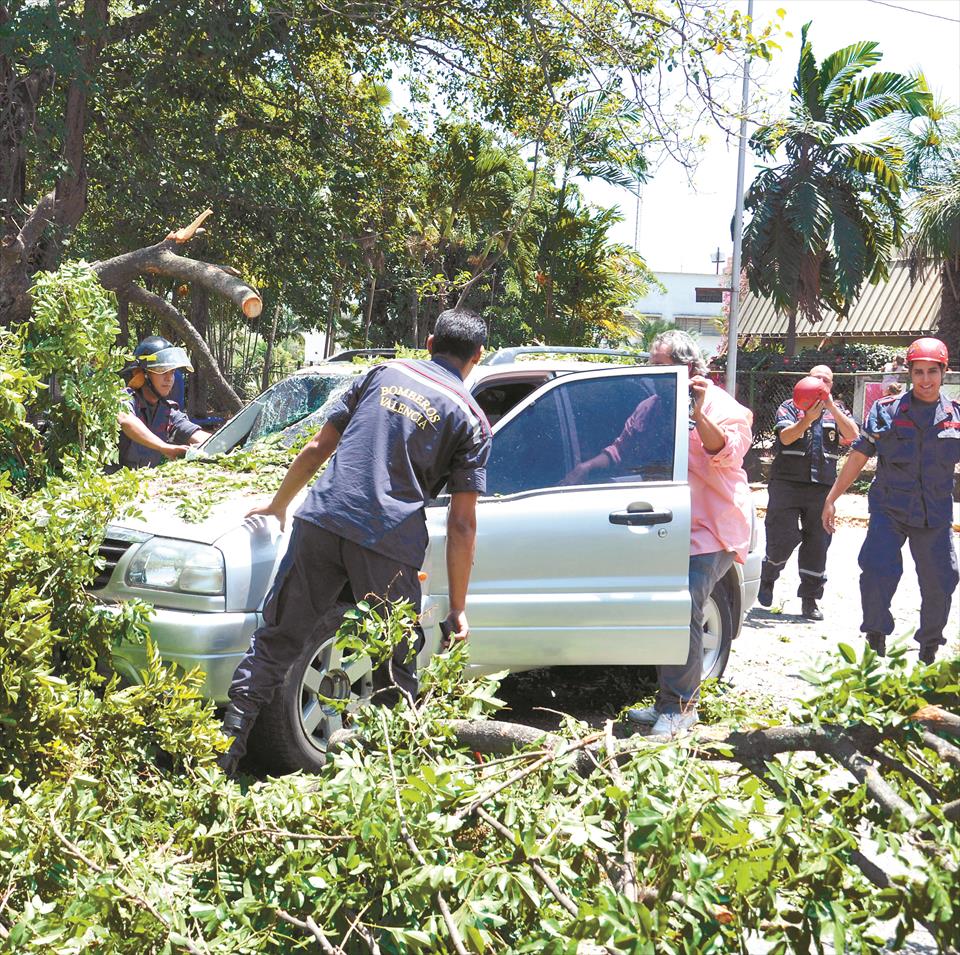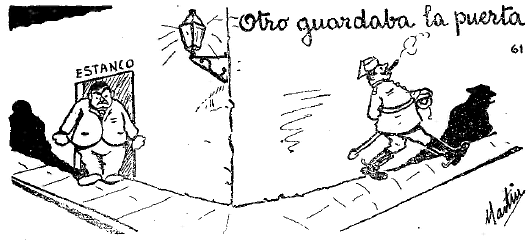
| Языки :: Испанский |
| Аудио |
 |
|
|
175 |
Español |
Spanish |
|
Lección Sesenta y una (61) |
||
| Noticias varias (1) | News items [Various news]. | |
| 1 |
Cae un árbol (2) y mata a un hombre. — Pamplona, viernes, 18 de Marzo. |
Tree falls and kills [at] man. — Pamplona. — Friday, March 18th. |
| 2 | Comunican de Sangüesa que cuatro vecinos estaban cortando leña, (3) | They report from S. that four people were cutting firewood, |
| 3 | cuando de repente cayó un árbol sobre ellos, (4) | when suddenly a tree fell upon them, |
| 4 | resultando muerto Félix López y con heridas graves Ramón Rivero, | causing the death of F. L. and serious injuries to R. R. [resulting dead F. L. and with s. i. R. R.], |
| 5 |
Dos individuos atacan un estanco. — Valencia, domingo, 9 de Diciembre. |
Two men attack tobacconist's shop. — Valencia, Sunday, December 9 th. |
| 6 |
A las nueve de la noche un desconocido, armado con una pistola, entró en un estanco de la calle de Castro, |
At 9 p.m., a man, armed with a pistol, entered [in] a tobacconist's shop on the C. street, |
| 7 |
mientras otro guardaba la puerta. Después de exigir la recaudación, |
while another guarded the door. After [of] demanding the receipts, |
| 8 | el desconocido hizo un disparo, que atravesó el cuello del estanquero, cuyo estado es gravísimo (5). | the stranger fired [made] a shot which pierced the neck of the tobacconist whose condition is extremely serious. |
| 9 | Los dos desconocidos se dieron a la fuga (6). | The two strangers took to flight. |
| EJERCICIOS | EXERCISE : | |
| 1 | Los vecinos de un pueblo son los que tienen en él su domicilio permanente y pagan las contribuciones locales. | The "vecino" of a place are those who have their permanent residence there and pay the local taxes. |
| 2 | Los habitantes son todas las personas que viven en un pueblo, ciudad o nación. | The inhabitants are all the persons who live in an inhabited place, a town, or country. |
| 3 | El estanco es la tienda donde se venden cerillas, tabaco y sellos de correos. | The estanco is the shop where they sell matches, tobacco, and post-[mail-]stamps. |
| 4 |
En España, lo mismo que en Francia, la fabricación y la venta del tabaco constituyen un monopolio del Estado. |
In Spain [the same] as in France, the making and sale of tobacco are a state monopoly. |
| 5 | Hay también monopolio del petróleo y de la gasolina. | There is also a monopoly of paraffin-oil and petrol. |
| NOTES. | |
| 1 | Varios, varias mean several, but also divers, various, which is also diversos, diversas. |
| 2 | Cae, or se cae, and, sent. 3, cayó or se cayó. |
| 3 |
Sangüesa : the diaeresis (ü) indicates that the u
is sounded (sangwayssa). — Vecino, neighbour or a permanent inhabitant of a place. La leña, firewood; la madera, wood (in general); el bosque, the wooded land, forest. — Cortar, to cut. |
| 4 | De repente (or de pronto), suddenly, has nothing to do with to repent, which is arrepentirse. |
| 5 |
Hacer, yo hago, usted hace, to do, I do, you do; yo hice, usted hizo, I, you did. — Atravesar, to traverse, cross. — Cuyo, whose, |
| 6 |
Dar, yo doy, usted da, ellos dan, to give, I, you, they give;
yo dí, usted dío, ellos dieron, I, you, they gave. (It is in order to make you used to them that we repeat the forms of the irregular verbs.) |
|
Pueblo, as we have seen, means : (a) people, or village, and also any inhabited centre, eccept the capitals of the provinces. |
|
|
The post : los correos (the mails). ¿Dónde está la Casa de Correos? (or simply : ¿Dónde está Correos?) : Where s the Post'Office? |
